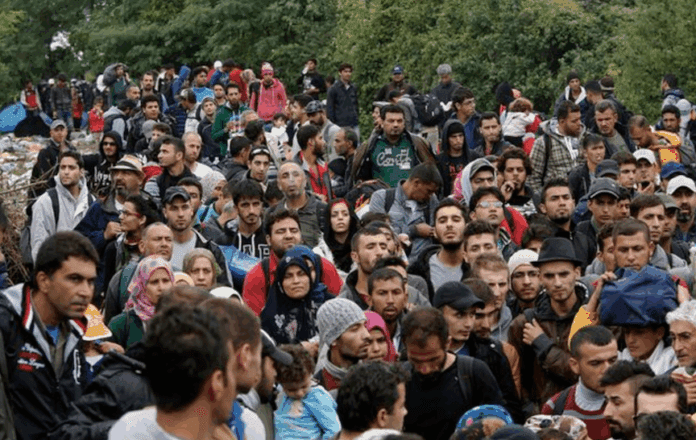Marko Barišić: Germany’s new border crackdown under Chancellor Friedrich Merz sparks fears Croatia may bear the brunt of returned migrants, including the challenges faced by the Croatian migrant community. With Greece and Austria refusing to accept returnees, EU asylum rules strain under pressure. Will Zagreb’s policies hold as Schengen suspension reshapes Europe’s migration landscape for Croatian migrants?
First move of the new German chancellor
The first act of Germany’s new chancellor, Friedrich Merz, upon taking office this Wednesday will be signing a decree deploying thousands of federal police officers to all German borders with one goal: to turn back migrants and prevent their entry. This initiative is likely to affect the Croatian migrant population. The decree takes effect on 7 May.
Suspension of Schengen agreement raises questions
This move suspends the Schengen Agreement on the free movement of goods and people within the European Union (EU). But who cares anymore? Germany has been shaken repeatedly by terrorist attacks carried out by migrants—those the country had welcomed and supported through its social welfare system. This suspension could also impact Croatian migrants’ ability to move freely.
Migration becomes a key electoral issue
The issue has become so critical that elections have been won or lost over it. Chancellor Merz, from the conservative Christian Democratic Union (CDU), has identified migration control as one of his top priorities. Therefore, Croatian migrant interests might be directly influenced by such policies.
Germany begins direct rejection of migrants
From Thursday, Germany will reportedly start “directly rejecting” migrants at its borders. They will not be permitted to submit asylum applications or other requests. They will simply be turned back. This could include those from the Croatian migrant community. But to where?
Dublin & Greece complicates matters
Under the Dublin Agreement, migrants denied asylum in one EU country must be returned to the first member state they entered. This is particularly challenging for the Croatian migrant group.
Anticipating fallout, Greece—where migrants continue to arrive by boat from Turkey—has declared it will not accept those Germany attempts to return. “We already have too many migrants and are not open to more,” officials stated. They are not alone in their firm stance.
Austria also rejects responsibility
Two days ago, Austria similarly announced it would not accept migrants turned back from Germany. It refuses to let its territory near the German border become a “waiting room.” Legally, Austria is not obligated, as most migrants entering its territory first arrived via Greece, Italy—or Croatia. These developments also impact the Croatian migrant population.
Croatia faces potential migrant influx
Due to Germany’s measures, Croatian migrants now risk having to return to Croatia if they illegally entered via Bosnia and Herzegovina or Serbia. Previously, after formally applying for asylum in Croatia, these migrants would typically continue their journey to Germany or other countries within days. Croatian authorities did not interfere—they simply let them leave.
Previous Croatian approach under scrutiny
But what happens now if Germany starts returning those who initially sought asylum in Croatia before attempting to do so in Germany? For Croatian migrants, the rejection process may remain unclear, as no Croatian officials have commented.

Croatian authorities remain silent
They will need to act quickly. Germany’s new migration policy will not face delays. Thousands of police officers await orders to begin border controls. Until now, Croatia has accepted migrants returned via court orders from other European countries and transferred them onward. The Croatian migrant situation hinges on these diplomatic decisions.
Potential for European diplomatic tensions
Previously, these cases were few enough to avoid major issues. But the current situation could trigger significant tensions between EU nations. While Merz has no room to backtrack, neither do other countries—especially Croatia, where Croatian migrants might face new pressures.
Croatia urged to adopt a firm stance
Zagreb will need to take a resolute position. The coming weeks will test Europe’s unity and Croatia’s capacity to navigate this escalating crisis for the Croatian migrant sector.

